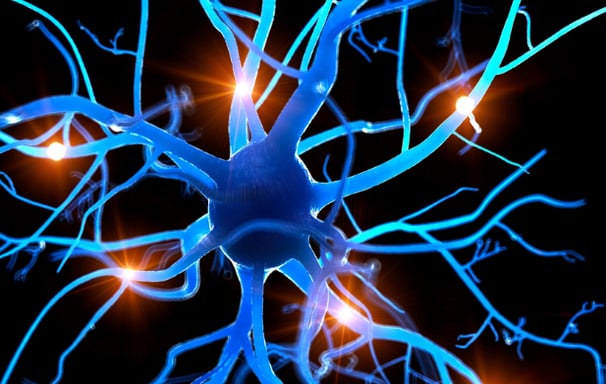MS FAQ
What is MS?
Multiple Sclerosis (MS) is a chronic autoimmune disease that affects the central nervous system (CNS), comprised of the brain, spinal cord, and optic nerves. If you've been diagnosed with MS, you are not alone (especially if you are a Canadian). Canada has one of the highest rates of MS in the world, so we are not alone!
MS causes the body's immune system to attack myelin, a fatty substance that surrounds and insulates nerve fibres (axons) in the central and peripheral nervous systems. Once myelin is damaged, nerve impulse transmission is interrupted and sometimes completely disrupted. If damage is substantial and myelin is replaced by scar tissue, the nerve fibres themselves can be damaged.
Symptoms
The signs and symptoms of MS can vary widely depending on the amount of nerve damage and which nerves are affected. Common symptoms include fatigue, walking difficulties, numbness or tingling, muscle weakness, blurred or double vision, and problems with coordination and balance.
Cause of MS
The exact cause of MS is unknown, but a combination of genetic and environmental factors is believed to contribute to the risk. Studies are being done to determine if certain risk factors, such as gender, age, family history, or lifestyle habits, impact a person’s susceptibility to the disease.
Types of MS
The various types of MS include:
Relapsing-Remitting MS. This is the most common form that patients are diagnosed with, and it is characterized by attacks (relapses) followed by partial or complete recovery.
Secondary Progressive MS. People diagnosed with RRMS transition to this phase during the progression of the illness. SPMS causes disability to progress steadily with fewer relapses.
Primary Progressive MS. People living with this type of MS experience a steady worsening of symptoms from the beginning without relapses or remissions.
Treatments
The current list of disease-modifying therapies can be seen on the MS Canada website. These therapies come in injectable, oral and infused forms. People diagnosed with MS should begin treatment as soon as possible.
There are also relapse management therapies which can decrease the severity and length of a relapse.
Symptom management therapies can help a patient deal with symptoms such as pain and fatigue.
Research is being done on new treatments and therapies for this illness, but it is time-consuming and expensive. Fundraising is needed to aid in the research and development of therapies. Make a Donation through MS Canada!




For more info or to donate: MS Canada
Early Symptoms
My first symptom was numbness in my left hand. There is no definite pattern for everyone, but numbness is common when people are diagnosed.
A first episode that lasts 24 hours is called clinically isolated syndrome (CIS). For some people, this never happens again, and they don't develop MS.
Common early symptoms include double vision, balance issues, fatigue, dizziness, numbness, and heat sensitivity.
Symptoms like this are caused by inflammation or myelin loss in the central nervous system. The myelin sheath is a protective membrane that wraps around parts of specific nerve cells. Myelin affects how fast signals travel through those nerve cells. Several diseases and conditions — multiple sclerosis being the most well-known — damage or destroy myelin.


Other MS Symptoms
Muscles that are weak, stiff, and sometimes painful
Restless legs syndrome
Difficulties controlling the bladder or urgency to urinate
Difficulty walking due to muscle weakness, spasticity, loss of balance, sensory deficits, foot drop, and fatigue
Constipation and bowel incontinence
Cognitive impairments affecting concentration, attention, memory, problem-solving, and judgment
Vertigo
Sexual problems, such as erectile dysfunction, vaginal dryness, and the inability to orgasm
Clinical depression
Emotional changes, such as mood swings, irritability, and uncontrolled laughing and crying (called pseudobulbar affect)

